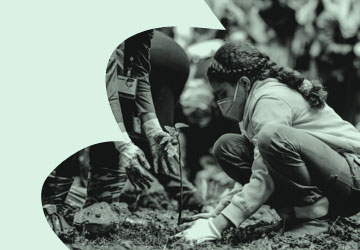Welfare & Lavoro
Italian elections: Family where art thou
Family and child poverty are this election campaigns forgotten issues, says the social sector, revealing that Italy is a country of old people who do not take care of their young.
di Staff
Its not a country for young people. Even less so for children and young people in difficult situations. Italian welfare?s resources go mainly to caring for the elderly (pensions, 68%) and to health care (24%), not to social assistance: the social services are allocated only 8% of the social and health care financial budget.
The small assistance blanket that Italy provides has to stretch to cover the needs of 100 thousand minors (1% of 0-17 year olds) who risk social exclusion and poverty. ?If ours is a society of old people, then it should be easier to take care of fewer young people, shouldn?t it?? asks Tiziano Vecchiato, director of the Zancan Foundation that at the end of March hosted an international convention attended by 500 delegates to discuss the problem.
What emerges when Italy is compared to the rest of the world is that when it comes to minors, Italy relies on estimates. There is no regular monitoring of the number of children who risk poverty and exclusion, or who live in situations that expose them to difficulties, like drug dependent parents or violent households.
The last official figures are those for 2005, when a national survey was launched. How many there are today, what kind of educational project is in store for them, how much time they have spent outside their families, unfortunately is unknown. ?Which is indicative of how much work remains to be done? highlights Vecchiato. ?In Italy we know how little we spend on children, but not what we spend it on. We hardly ever know the results that we achieve. We have to change all this, catch up to other countries and begin monitoring need and intervention?.
Research carried out in the UK presented at the conference shows that children in residential care have higher probabilities of suffering from mental health problems compared to those that are cared for by foster parents, friends or relatives (72%, 40% and 32% respectively). Vecchiato highlights that: ?These figures show that prevention is really important. The USA also teaches us that for every dollar spent on preventing social problems the state can expect a saving of $2.58 in costs later?.
?Family and child poverty are this election campaign?s forgotten issues? concluded Vecchiato. ?I hope that the new government and the opposition will realise how important it is. This sector doesn?t just need big structural interventions, but a real added input at a local and regional level to avoid that children in difficulty just end up being placed somewhere. A real project must be made out of each of these children?s lives. This is the only way that a country of old people can look after its young?.
More info
www.fondazionezancan.it

